
Artificial Life, AI,
Art and Altered Nature: Synthesis New Lives
Intro
The term "Artificial Life" was coined by computer scientist Christopher Langton in 1987. However, the notion and practices of "artificial life" are far predated. This topic has long been an interest of scientists and artists, who have been exploring the fundamental principles of life and attempting to rethink life in the context of an artificial system.
In recent times, Artificial Intelligence algorithms have been widely implemented in various interdisciplinary fields including Computational Biology and Synthetic Biology. Through synthesising or simulating hardware, software, and wetware, technology restructures and represents the characteristics of the natural living system. Meanwhile, in the increasingly participatory interactions between humans and non-human entities, the technological assemblage also behaves like a living organism, performing in the collaboration and cohabitation with environment.
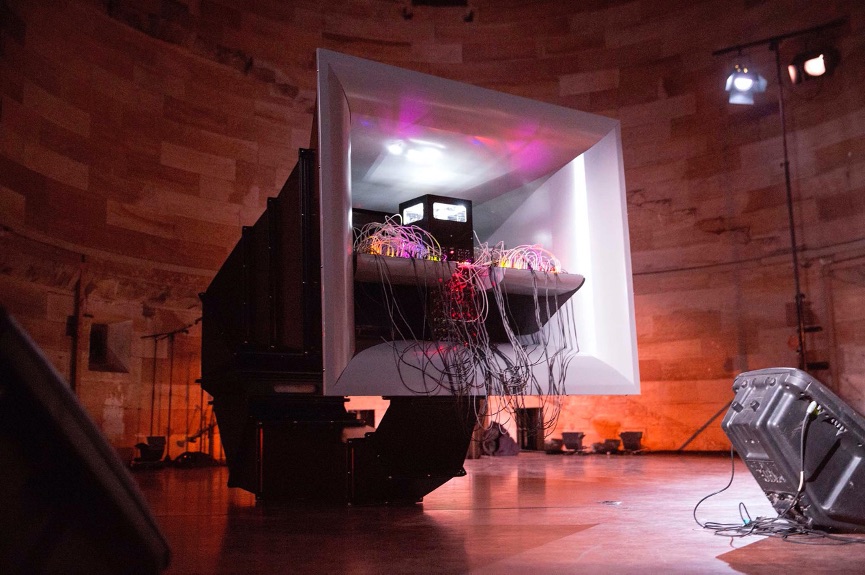
Guy Ben-Ary
cellF, Installation view, Sydney, 2016.
©️ Guy Ben-Ary
How can life be reimagined in the process of the transition? What is the aesthetics in Artificial Intelligence and the realm of life? How can artificial beings perform in symbiosis with the community and even influence society and culture? How do we perceive the ethical and moral issues?
This seminar aims to bring artists, scientists, and scholars together to discuss from different perspectives how and why artists and scientists create Artificial Life. How was technology inspired by living things? How to understand the biological nature of technology? How have these fields entangled with nature and present themselves in another form of nature?
01
Chapter 2
Theme: Artificial Life, AI, Art and Altered Nature - Synthesis New Lives
Organizers: Aiiiii Art Center, Computational Media and Arts, HKUST(GZ), Chronus Art Center
Date: 16:00(GMT+8), August 28, 2022
Academic Host: Prof. Kang Zhang
Curators: Ziwei Wu, Xi Li, Xin Bi, Jiamin Cao
Speakers: Guy Ben-Ary,Ku Kuang-Yi,Lo Yu-Chun
Coordinator: Saisai Liu
02 Theme
Developed from modern biotechnology, synthetic biology seeks to design, control and modify biological processes or systems to various extent for synthesizing living organisms with new abilities. For example, re-coding the DNA sequence, growing life with tissue culture, and discovering novel organisms with machine learning, etc. Synthetic biotechnology could be applied to multiple disciplines as a productive, effective and creative approach and tool. However, ethical controversies have always accompanied its development. The body, in many discourses and applications of synthetic biology, seems to be considered as a reductive object in terms of its medical-anatomical values. It’s isolated, controllable, and enframed in human centric prospects.
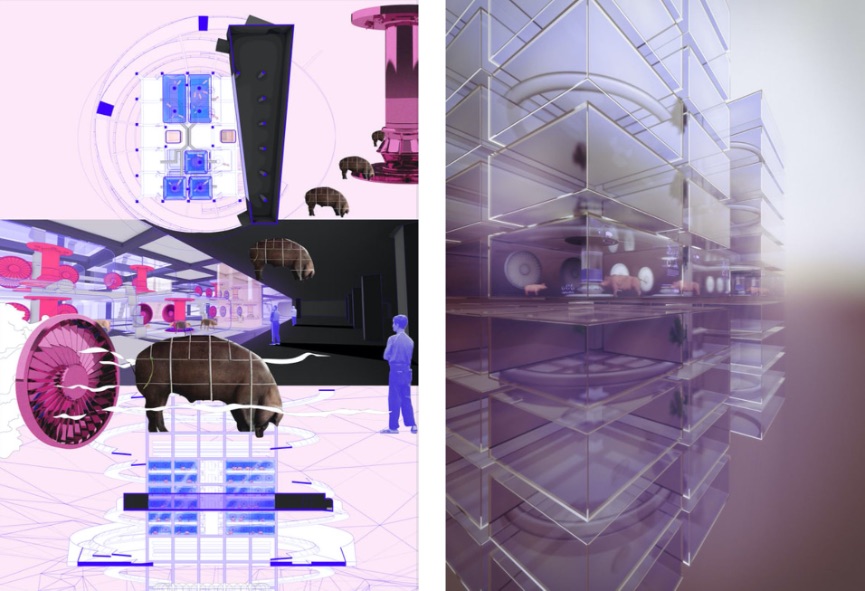
Future Museum of Holy Pig, 2020,
KU Kuang-Yi, LO Yu Chun, TIEN Zong-Yuan
© the artists
The panel discussion will focus on the synthetic biotechnology in art. Two groups of speakers (Guy Ben-Ary, KU Kuang-Yi & LO Yu-Chun) are invited as artistic practitioners and researchers to share their thoughts on synthetic biology, wetware and artificial life in the field of Life Sciences based on the conception of their artworks. The event intends to explore the approach of combining computational techniques with biological materials in artworks, and investigate the ethical and moral issues in the interdisciplinary context of art and technology.The dynamics between local culture, technology, and the natural environment will also be explored.
03 Speakers
|Guy Ben-Ary|
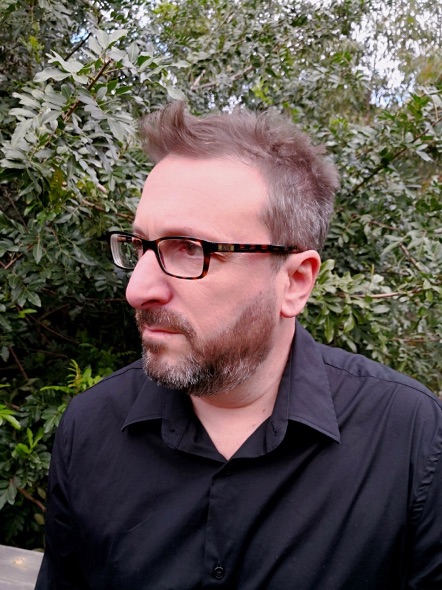
Guy Ben-Ary, is a Perth based artist and researcher. He currently works at SymbioticA at the University of Western Australia. Recognised internationally as a major artist and innovator working across science and media arts, Guy specialises in biotechnological artwork, which aims to enrich our understanding of what it means to be alive. Guy’s work has been shown across the globe at prestigious venues and festivals from the Beijing National Art Museum to San Paulo Biennale to the Moscow Biennale. His work can also be seen in the permanent collection of the Museum of Modern Art in New York. His work Bricolage won an award of excellence in the Japan media art festival, cellF & Silent Barrage were awarded an Honorary Mention in Prix Ars Electronica (2017, 2009) and Silent Barrage also won first prize at VIDA, a significant international competition for Art and Artificial Life. Interested in how art has the potential to initiate public debate on the challenges arising from the existence of these liminal lives, Ben-Ary creates artworks designed to problematise current and emergent bio-technologies’ influence on the shifting forces that govern and determine life, death and sentience.
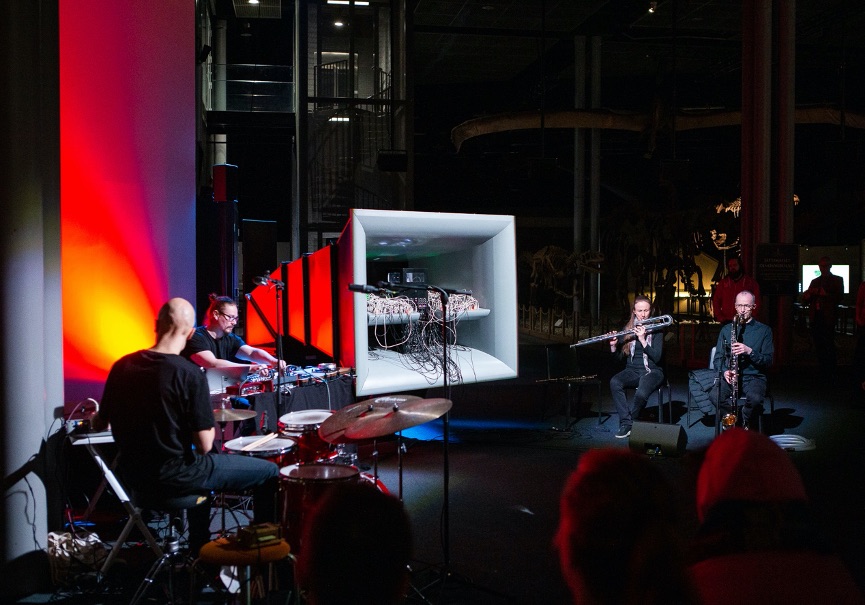
Guy Ben-Ary
cellF performing with defunensemble, Helsinki 2019.
©️ Guy Ben-Ary
| Ku Kuang-Yi |
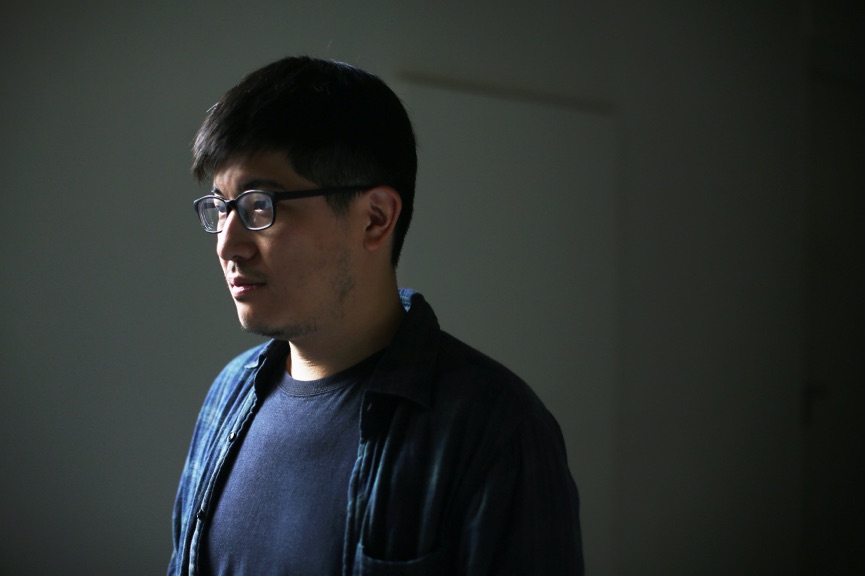
Ku Kuang-Yi was born and raised in Taipei, Taiwan, and has been based in the Netherlands since 2016. He is doing his PhD research at Sheffield Hallam University, UK and the research topic is the interdisciplinary practice between art, design and bioscience. He has graduated with triple master degrees with social design from Design Academy Eindhoven, dentistry from National Yang-Ming University and communication design from Shih Chien University. He is a former dentist, bio-artist and speculative designer. He also co-founded TW BioArt (Taiwan bioart community) to stimulate the fields of BioArt and Science+Art in Taiwan. His works often deal with human body, sexuality, interspecies interaction and medical technology, aiming to investigate the relationships among technology, individual and environment.
| Lo Yu-Chun |
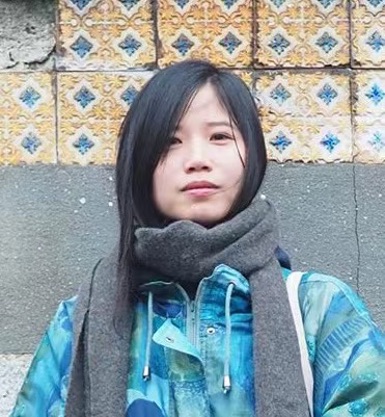
Lo Yu-Chun was born in northern Taiwan, and has been based in the Netherlands since 2015. She has graduated with a bachelor degree in Man & Communication department from Design Academy Eindhoven in 2020. Yu-Chun Lo has broad interests in many different topics. Many of her works focus on how people’s behavior is influenced by the inner world like; thinking, emotions, ideology and culture..., and aim to get a deeper understanding of what is the essence of being a human.